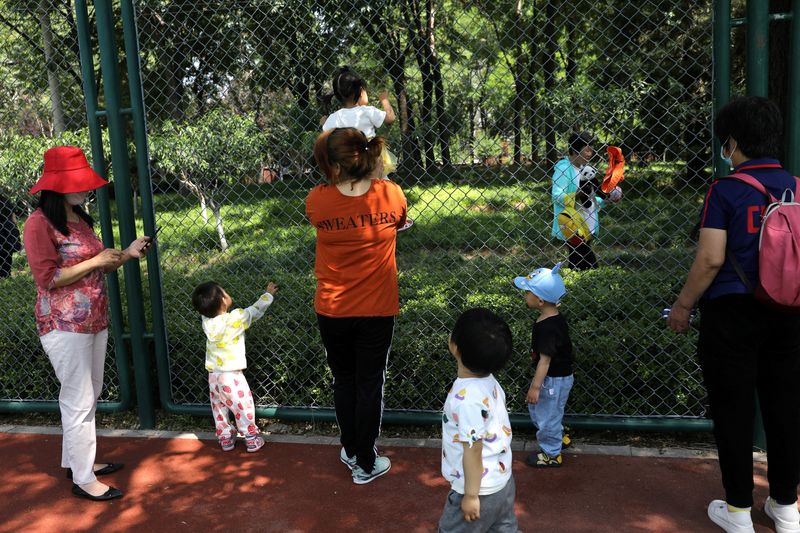China’s CCTV slams Western hype of its population decline
2023.04.19 22:58

© Reuters. FILE PHOTO: Children play next to adults at a park in Beijing, China June 1, 2021. REUTERS/Tingshu Wang
HONG KONG (Reuters) – Western media reports on China’s population being overtaken by India deliberately ignores China’s development, using the topic to “bad mouth” it and advocate decoupling, state broadcaster CCTV said on Thursday.
CCTV’s sharply worded commentary said the subtext from Western media in recent years was that China’s development was in “big trouble” and that when China’s demographic dividend disappears, it would decline, and the global economy would also suffer.
“They slandered all the way and China has developed all the way, creating a miracle of sustainable and stable economic development with a huge population.”
India is overtaking China as the world’s most populous nation, and will have almost 3 million more people than its neighbour by the middle of this year, data released on Wednesday by the United Nations showed.
“The United States is stepping up efforts to contain China’s development and advocate further decoupling and found new hype points from the United Nations report,” CCTV said, adding that the West simply equated population size with development achievements.
“Such hype lacks a basic understanding of the law of population development. With the development of human society today, the decrease in birth rate and decline in willingness to bear children are common problems faced by the whole world,” CCTV said, adding that Western developed countries generally faced problems such as labour shortages.
Last year, China’s population fell for the first time in six decades, a historic turn expected to usher in a long period of decline in citizen numbers, with profound implications for its economy and the world.
Chinese Foreign Ministry spokesperson Wang Wenbin said population dividends did not only depend on quantity but also on quality.
“Population is important but talents are also important…China has taken active measures to respond to population aging,” Wang told reporters on Wednesday.








